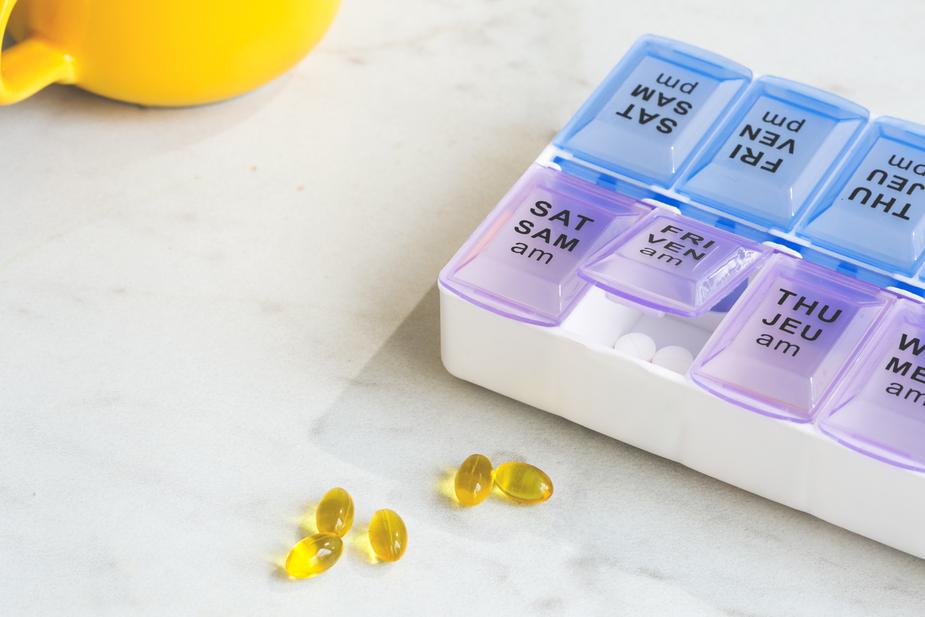ADHD and Anxiety are often ‘partners in crime’. According to recent studies, up to 50% of adults and 30% of children with ADHD also suffer from an anxiety disorder.
Why do ADHD and anxiety often coexist? They may be separate conditions but the symptoms of one may be confused with the other. The situation can be much like a chicken and egg dilemma, trying to figure out which came first and where to focus treatment options.

Understanding The Relationship Between ADHD and Anxiety
Anxiety disorders share some common symptoms with ADHD, including restlessness and difficulty focusing. The anxiety disorder can cause a person to be forgetful or detached and appear to have ADHD.
On the other hand, a person with ADHD may have anxiety because of situations or circumstances that have occurred because of the forgetfulness or distraction caused by ADHD.
Whether you have both diagnoses or just one of them, life can be extremely difficult and frustrating. I can attest to this statement because I have both ADHD and an anxiety disorder.
It depends on the day which is the bigger issue for me. Sometimes ADHD is the main issue that drives my anxiety. For example, when I can’t focus and get behind on a task or project, I become anxious about missing deadlines. Or when my mind comes up with too many ideas and signs up for too many things, I find myself overwhelmed and over-scheduled which further fuels my anxiety.
Other days, anxiety is the main culprit. For example, I may be anxious about something, become preoccupied with it, and as a result, can’t focus or be present.
What can you do if you or your child battles with ADHD and anxiety? Here are some of the tricks I have learned along the way. This is my personal experience, and does not replace medical advice – always consult your healthcare professional.
Tips For Managing ADHD and Anxiety

Figure Out Your Biggest Issue And Treat It First
Is it the ADHD or anxiety that is causing the bigger problems? Treatment plans usually involve a combination of medication and cognitive behavior therapy. Keep in mind that everyone is different, and the treatment plan should be tailored to the individual.
I figured out how to treat my dual diagnosis by working with a medical professional and using trial and error. We tried to tackle the anxiety first with an anti-anxiety medication, but the ADHD proved to be the biggest issue. Therefore, the doctor prescribed ADHD medication and I stopped taking the anti-anxiety medication. I have relied on cognitive behavior therapy, diet and exercise to control my anxiety.

Analyze Your Medication
The most common drugs that doctors suggest for ADHD are stimulants like methylphenidate and amphetamines. If there is a true double diagnosis, then stimulant ADHD medications may worsen the underlying anxiety. The only way to know is to try the stimulant ADHD medication. If the stimulant ADHD medications worsen your anxiety, your doctor may suggest other medicines, such as the nonstimulant drug atomoxetine (Strattera). Strattera can control the ADHD without boosting anxiety levels.
Avoid Over-scheduling
The ADHD mind has no shortage of ideas and can get bored easily. As a result, the ADHD often drives us to commit to too many things. Anxiety kicks in when we realize that we can’t complete it all. I refer to this state as ‘frenzy mode’.
The only way to avoid this is to recognize this pattern and try to prevent it. Make sure you focus on completing tasks or projects before taking on new ones. Map out the effort and time needed to complete something before committing to it.

Avoid Sugars and White Flours
Sugar and white flours cause spikes in blood sugar levels which can heighten anxiety. While this is true for everyone, it is especially dangerous for the person that struggles with ADHD or anxiety because it can heighten anxiety levels and decrease focus. Consuming unprocessed foods with adequate protein and healthy fats can help stabilize blood sugar and decrease these cycles.
Quiet the Mind
Individuals with ADHD and anxiety should try to quiet their mind and find calmness. The most common ways of doing this are meditation, yoga, and breathing exercises. While it can be a challenge to quiet the mind, try beginning with simple breathing exercises or short meditation sessions. There are lots of applications and websites that offer different options. Two of my favorites are Headspace and Calm.
Focus on the Positive
There is usually no simple answer or solution that will instantly solve all the negative aspects of ADHD and anxiety. It may take time to figure out what combination works for you or your child. Try to notice your thought patterns and focus on the positive traits. Be grateful for what you do well, and look for options to manage the rest!
About The Author

Kerry Troester is a freelance writer and mother of three teenage boys, who all have ADHD. She also manages training and development for a Fortune 500 company and has an MBA in Marketing from the Wharton School of Business.




Leave A Comment
You must be logged in to post a comment.